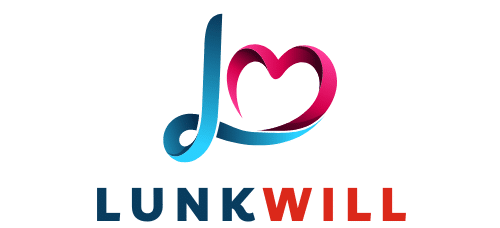The liver is one of the body’s most essential organs, performing a multitude of functions that are vital to maintaining good health. From detoxifying harmful substances to aiding in digestion and metabolism, the liver’s well-being is crucial. However, in today’s fast-paced lifestyle, liver health can be compromised due to poor dietary choices, excessive alcohol consumption, and sedentary habits, leading to conditions like fatty liver disease, liver cancer, and other liver-related diseases.
Understanding how to nurture your liver through diet is therefore paramount. Certain foods can help protect liver tissues from damage, improve liver function, and reduce the risk of liver disease. This article delves into the dietary choices that can bolster your liver health and help prevent liver-related complications.
Dans le meme genre : What are the best foods to eat post-workout?
The Impact of Diet on Liver Health
Before exploring what foods are beneficial for the liver, one must understand the relationship between diet and liver health. The liver functions as the body’s primary filtration system, processing every nutrient that enters our bloodstream from the digestive tract. Consuming a balanced diet rich in specific nutrients can support liver function and protect against liver disease.
Conversely, a diet high in processed foods, saturated fats, and sugars can contribute to fat accumulation in the liver, known as nonalcoholic fatty liver disease (NAFLD). Over time, this can cause inflammation and scarring, leading to more serious liver damage. Therefore, a conscious approach to eating can significantly reduce the risk of liver disease and maintain overall health.
A voir aussi : How can you balance hormones through exercise?
Foods that Promote Liver Health
What you eat can profoundly affect the health of your liver. A diet that supports liver function is rich in antioxidants, good fats, and anti-inflammatory properties. Here are some foods that are particularly beneficial for liver health:
Fatty Fish
Fatty fish such as salmon, trout, and mackerel are high in omega-3 fatty acids, known for their anti-inflammatory benefits. These good fats can help reduce liver fat levels and decrease inflammation, which might help to prevent liver diseases like nonalcoholic fatty liver. The American Heart Association recommends eating two servings of fatty fish per week to reap the heart and liver benefits.
Green Tea
Green tea is rich in a type of antioxidants called catechins, which have been linked to several health benefits, including improved liver function. Studies have found that green tea consumption can help prevent liver cancer and reduce the risk of fatty liver disease. Drinking green tea could thus be a simple and effective way to protect your liver.
Olive Oil
This healthy fat is a cornerstone of the Mediterranean diet, which is widely recognized for its benefits to heart health. Olive oil consumption has also been associated with lower levels of fat accumulation in the liver and improved blood flow in the liver, suggesting it can help maintain a good liver.
Coffee
Regular and moderate coffee consumption has been linked to a lower risk of liver disease, including a reduced risk of cirrhosis and liver cancer. Studies published on resources like PubMed NCBI indicate that coffee may protect the liver from damage by reducing the buildup of fat and collagen, and lowering the risk of chronic liver disease.
Beetroot Juice
Beetroot juice contains a high amount of antioxidants and nitrates, which are beneficial for heart health and may also help improve liver function. The juice has been shown to protect the liver from oxidative stress and inflammation while stimulating the detoxification enzymes.
Foods to Limit for Liver Health
Just as certain foods can promote liver health, others can contribute to liver damage and should be limited in a liver-friendly diet.
High-Fat and Sugary Foods
Eating a diet high in saturated fat, trans fats, and sugars can increase liver fat. Foods like pastries, fried foods, and sugary drinks should be consumed sparingly to avoid the risk of fatty liver disease.
Alcohol
Excessive alcohol consumption is a well-known cause of liver disease. Alcohol can lead to fat buildup, inflammation, and scarring in the liver, resulting in conditions like alcoholic fatty liver, hepatitis, and cirrhosis. Limiting or avoiding alcohol can greatly reduce the risk of these diseases.
A Balanced Diet for Liver Health
A balanced diet is essential for liver health. It should include a variety of foods from all the food groups: fruits, vegetables, whole grains, lean proteins, and healthy fats. Here are some guidelines for a liver-healthy diet:
Prioritize Whole Foods
Eating a diet based on whole foods rather than processed foods can help ensure you’re getting the nutrients your liver needs to function properly. Whole foods such as fruits, vegetables, nuts, seeds, and legumes are rich in the antioxidants that help protect the liver.
Increase Fiber Intake
Dietary fiber helps your liver work at an optimal level. Foods high in fiber such as oats, barley, beans, and lentils can help improve liver function.
Stay Hydrated
Water is essential for liver health. It helps the liver to flush out toxins more effectively. Aim to drink at least 8 glasses of water a day to help support liver function.
Conclusion
Your diet plays a pivotal role in maintaining liver health and preventing liver disease. Incorporating liver-friendly foods such as fatty fish, green tea, olive oil, coffee, and beetroot juice into your diet can protect liver tissues and improve liver function. Conversely, limiting your intake of high-fat, sugary foods and alcohol can prevent liver damage. Following a balanced diet, rich in whole foods and staying hydrated, will also contribute to overall liver health. Remember, the choices you make at the dining table can have a profound impact on your liver’s well-being. Choose wisely to ensure a healthy and well-functioning liver.













